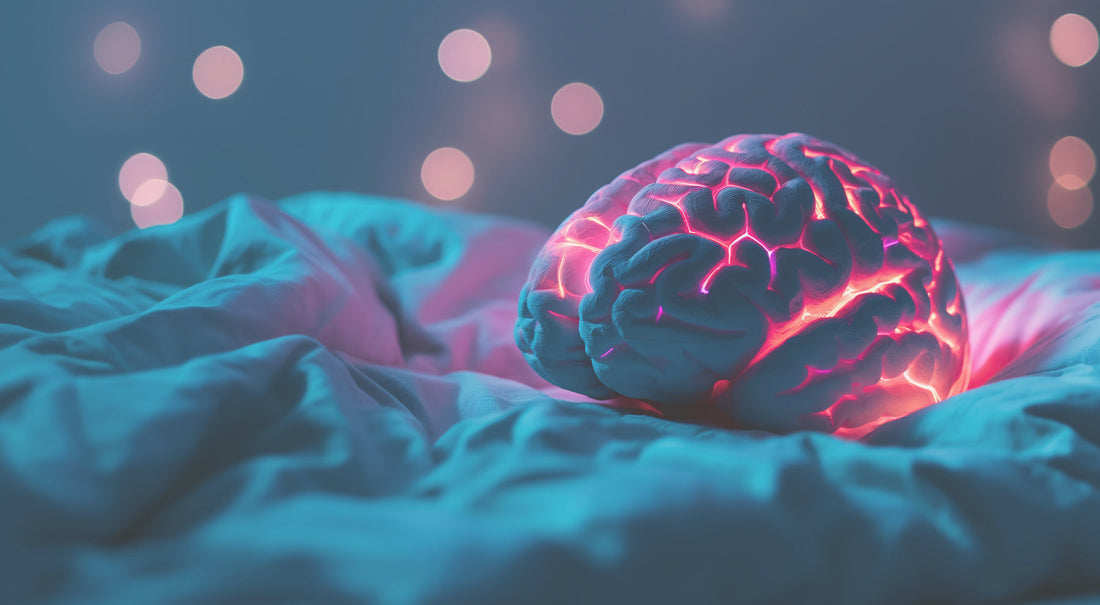
Mind-Body Healing
How Does Sleep Help Mental Health: The Vital Connection
By Mind²
Understanding how does sleep help mental health is crucial for anyone looking to improve their wellbeing. The relationship between quality sleep and mental wellness forms one of the most fundamental connections in our body's health system. In fact, sleep affects nearly every aspect of brain function, from emotional regulation to cognitive performance.
The Science Behind Sleep and Mental Health
When we sleep, our brains don't simply shut down. Instead, they perform essential maintenance and processing functions. During deep sleep stages, your brain consolidates memories, processes emotional information, and clears out toxins that build up during waking hours.
Furthermore, research consistently shows that adequate sleep helps regulate neurotransmitters like serotonin and dopamine. These brain chemicals play key roles in mood regulation. Therefore, when sleep patterns become disrupted, these chemical balances can shift, potentially triggering or worsening mental health conditions.
Additionally, the relationship between sleep and mental health works both ways. Poor mental health can disrupt sleep patterns, while improved sleep helps mental health conditions like anxiety and depression. This bidirectional relationship creates either a virtuous cycle of good sleep and mental wellbeing or a vicious cycle of insomnia and declining mental health.
How Does Sleep Help Mental Health Specifically?
Emotional Regulation and Stress Management
Quality sleep strengthens our emotional resilience. When we're well-rested, we can handle life's challenges more effectively. In contrast, sleep deprivation makes us more reactive to negative stimuli and less responsive to positive experiences.
Sleep also helps us process difficult emotions. During REM sleep, our brains process emotional experiences from the day. This processing helps us make sense of challenging events and reduces their emotional impact over time. As a result, proper sleep helps mental health by creating emotional stability.
Cognitive Function and Decision Making
Sleep directly impacts our cognitive abilities. After a good night's rest, you'll notice:
- Improved concentration and attention span
- Enhanced problem-solving abilities
- Better memory formation and recall
- More creative thinking
- Faster reaction times
These cognitive benefits contribute significantly to mental wellness. For instance, clearer thinking helps us navigate daily challenges more effectively. Moreover, better decision-making leads to fewer stressful situations, creating a positive impact on our mental state.
Sleep Disruption and Mental Health Disorders
Chronic sleep issues strongly correlate with various mental health conditions. In fact, approximately 80% of people with depression experience sleep problems. Similarly, anxiety disorders frequently co-occur with insomnia and other sleep disturbances.
Research indicates that addressing sleep problems can significantly improve symptoms of mental health disorders. For example, cognitive behavioral therapy for insomnia (CBT-I) has shown remarkable results in reducing both sleep problems and depression symptoms simultaneously.
Additionally, bipolar disorder shows particularly strong connections to sleep disruption. Changes in sleep patterns often precede mood episodes. By maintaining regular sleep schedules, many patients experience fewer and less severe episodes. This further demonstrates how sleep helps mental health management in serious conditions.
Practical Steps to Improve Sleep for Better Mental Health
Improving your sleep quality doesn't require complicated interventions. Often, simple adjustments to your routine can make significant differences. The Mayo Clinic recommends six steps to better sleep, including maintaining consistent sleep schedules and creating a restful environment.
Additionally, incorporating weekly rituals can enhance both sleep quality and mental wellness. These might include meditation practices, gentle evening yoga, or journaling before bed. For more structured approaches, consider exploring weekly rituals to enhance control and well-being, which can establish healthy patterns supporting both sleep and mental health.
Developing a Sleep-Friendly Evening Routine
Your pre-sleep activities significantly impact sleep quality. Consider implementing this ordered approach:
- Set a technology curfew one hour before bed
- Dim lights throughout your home to signal bedtime
- Perform a relaxing activity like reading or gentle stretching
- Practice deep breathing or progressive muscle relaxation
- Keep your bedroom cool, dark, and quiet
By following these steps consistently, you create powerful cues that prepare your body and mind for restorative sleep. Consequently, you'll experience how sleep helps mental health through improved mood and cognitive function.
When to Seek Professional Help
While everyone experiences occasional sleep difficulties, persistent problems warrant professional attention. If poor sleep consistently affects your daytime functioning or mental wellbeing, consider consulting a healthcare provider.
Sleep specialists can identify underlying issues like sleep apnea or restless leg syndrome that might be disrupting your rest. Mental health professionals can help address psychological factors affecting sleep. Either way, seeking help demonstrates self-care and commitment to your wellbeing.
Conclusion
The question of how does sleep help mental health reveals a profound connection between rest and psychological wellbeing. Quality sleep provides the foundation for emotional regulation, cognitive function, and overall mental wellness. By prioritizing sleep hygiene and addressing sleep problems promptly, you invest in better mental health.
Remember that improvements don't happen overnight. Small, consistent changes to sleep habits gradually build better patterns. With patience and persistence, you can experience firsthand how sleep helps mental health and overall quality of life.



